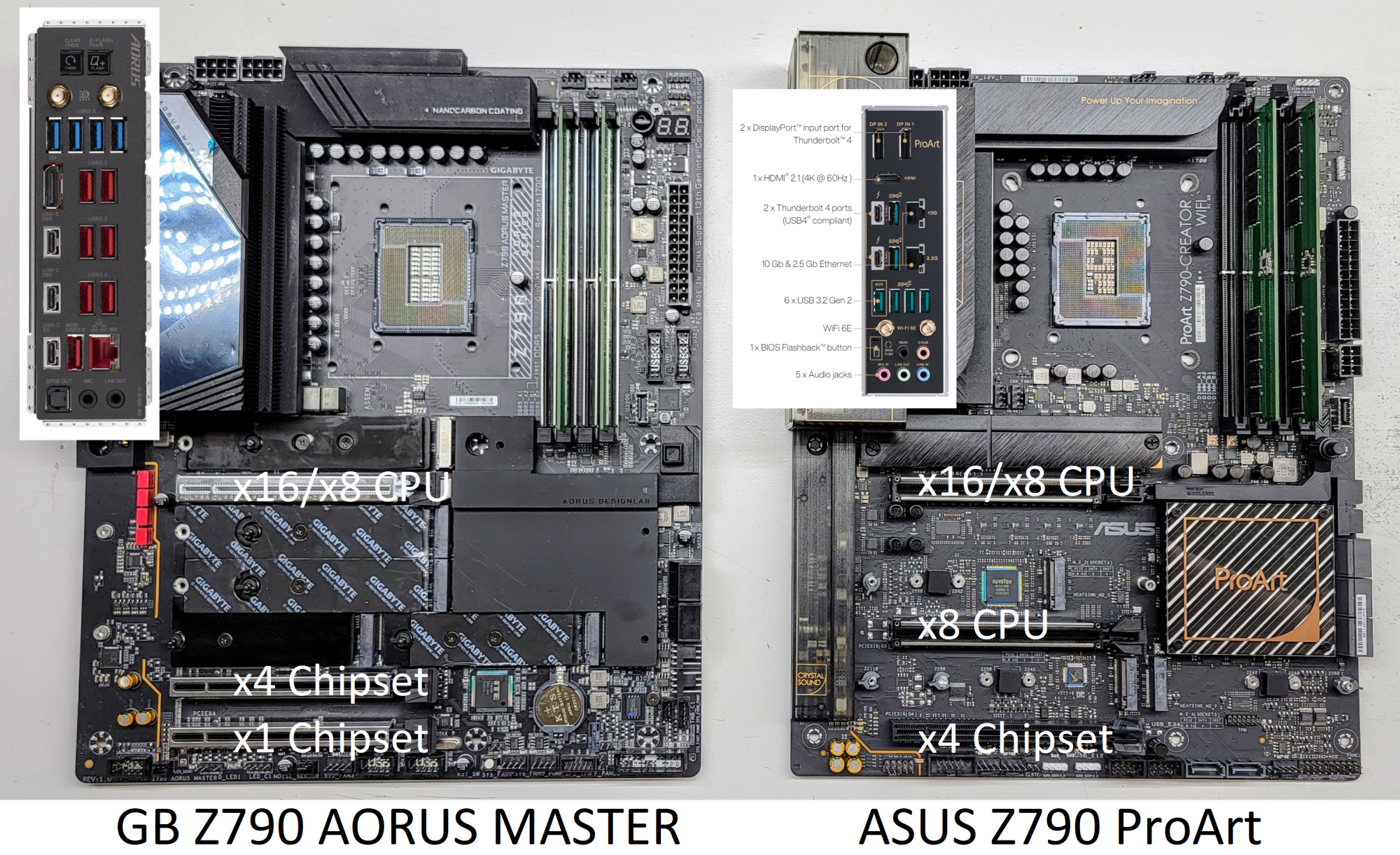xDiVolatilX
2[H]4U
- Joined
- Jul 24, 2021
- Messages
- 2,524
Thanks for sharing. I have the Aorus Z790 Master and I have no issues at all if you were considering it I recommend this board it's so sweet.I am having continual boot issues with my z690 MSI carbon and I have tried a lot of things.. once windows loads it's solid as a rock but a cold boot in the morning is typically a "hang, power off, re-attempt and usually it makes it to W11" ... it was annoying as hell.. Sooo I was about to just return it and get a z790 Aorus master or the Asus rog strix z790-E... The others on reddit with this same issue never sorted it out, just returned the board for another and that was that. but I am now keeping this board... read my updates below:
EDIT: update - looks like a bad sata cable was to blame for the boot issues.. I had one older SSD which required a connection to a sata port via cable.. I noticed that drive didn't show up in the devices from time to time so I reseated the cables on both ends really well.. that didn't improve things at all. It was still intermittent and booting took a lot longer than I felt it should.. so just removed the drive and now the system boots quickly and reliably.. I had this happen years ago on another system and I should have caught this sooner but oh well. The z690 carbon feels solid now in all respects.
EDIT2: the final update: turns out the ASMedia chip on the MSI z690 carbon and edge and I think on their MEG z690/z790 variant boards have issues. My boot problems were 100% related to this, it was not a bad sata cable, the whole controller is not working right and most people are just disabling it in the BIOS (called "External SATA 6G" - runs the physical ports A and B on my board) because windows 11 was complaining about it literally every other boot without anything even connected to it. Fortunately this was just two additional SATA ports - I just has the misfortune of using one of them for my one non-m.2 drive and it caused a bunch of issues.. AND all of the SATA ports are buried behind my giant ass video card - requiring a complete removal of said video card to access those ports. Anyways.. just wanted to make note in case anyone else runs into this issue. Maybe MSI will fix the ASMedia chip issue with a bios update. who knows. I don't even care about that controller so I am leaving it disabled in the bios from here on out.
![[H]ard|Forum](/styles/hardforum/xenforo/logo_dark.png)
